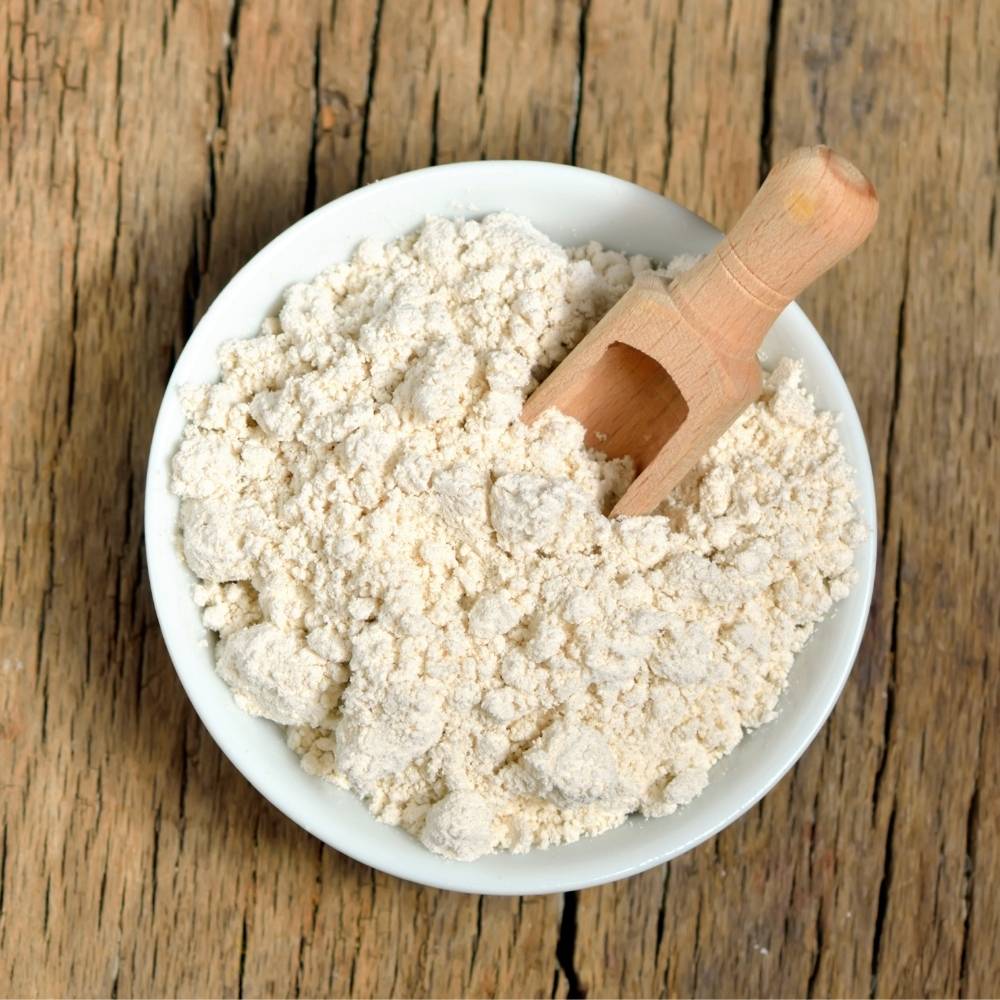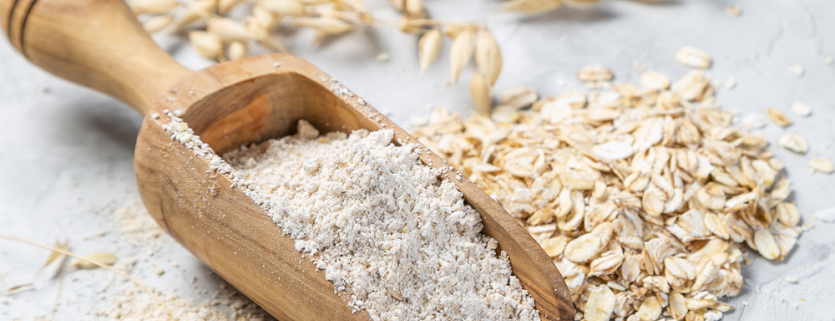Does oat protein build muscle?
In recent years, plant-based protein powders have taken center stage in the health and fitness world, offering clean, sustainable, and allergen-friendly alternatives to traditional animal-derived supplements. Among these, oat protein powder has emerged as a rising star—not just for vegans, but for athletes, fitness enthusiasts, and health-conscious consumers alike.
Let’s dive into the science and practical application of oat protein powder for muscle growth.
What Is Oat Protein?
Oat protein is derived from whole oats, typically through a concentration or isolation process that removes excess carbohydrates and fats, leaving behind a high-protein oat concentrate. While oats naturally contain around 12–15% protein, modern processing technologies can yield oat protein powders with 55–80% protein content, making them highly suitable as dietary supplements.
What sets oat protein apart is its natural balance of macronutrients and micronutrients, along with a mild, neutral taste and smooth texture that blends easily into shakes, smoothies, and baked goods.

Is Oat Protein a Complete Protein?
A “complete” protein contains all nine essential amino acids (EAAs) in adequate proportions. Oat protein comes very close, with strong levels of valine, leucine, isoleucine, and threonine—amino acids vital for muscle protein synthesis. However, it is relatively low in lysine, which means it’s not technically complete on its own.
Still, when combined with other lysine-rich foods (like legumes, seeds, or even pea protein), oat protein easily becomes a complete protein source, ideal for supporting muscle growth.

Muscle-Building Amino Acids in Oat Protein
For building muscle, certain amino acids play a particularly critical role—especially the branched-chain amino acids (BCAAs): leucine, isoleucine, and valine.
Leucine: The Muscle Trigger
Leucine is the key amino acid responsible for triggering muscle protein synthesis (MPS) through the mTOR pathway. Oat protein contains about 5.5–6.5% leucine (depending on concentration), which is slightly lower than whey but still within the effective range for promoting muscle growth.
Other EAAs and BCAAs
Oat protein contains all three BCAAs, plus the remaining essential amino acids like phenylalanine, methionine, and threonine, which are necessary for:
Muscle tissue repair
Hormone synthesis
Immune function during intense training
With an optimal intake strategy, oat protein can supply all the raw materials your body needs to recover and build lean muscle.

Is Oat Protein Effective for Muscle Growth?
Let’s break it down based on scientific mechanisms and research-backed principles.
1. Sufficient Protein Quantity
Muscle building requires adequate total protein intake—typically around 1.6–2.2 grams of protein per kilogram of body weight daily. Oat protein powder provides a concentrated source of protein that helps individuals meet these targets more easily, especially those on plant-based diets.
2. Muscle Protein Synthesis (MPS)
Oat protein supports MPS when consumed in doses of 20–30 grams per meal, especially when paired with resistance training. While whey protein may stimulate MPS slightly more rapidly due to faster digestion, oat protein offers a slower, sustained release, which may actually reduce muscle breakdown (catabolism) over time.
3. Bioavailability and Digestibility
Oat protein has a PDCAAS (Protein Digestibility Corrected Amino Acid Score) of around 0.8–0.9, which is quite high for plant-based proteins. This score measures both amino acid content and digestibility—making oat protein an effective and absorbable source of muscle-building nutrients.

How Does Oat Protein Compare to Other Proteins?
| Protein Type | Leucine Content (g per 25g protein) | Digestibility | Vegan | Allergen-Free | MPS Potential |
|---|---|---|---|---|---|
| Whey Isolate | 2.7–3.0g | Very High | No | No | Excellent |
| Soy Protein | 2.0–2.5g | High | Yes | Rarely | Very Good |
| Pea Protein | 1.8–2.2g | High | Yes | Yes | Good |
| Oat Protein | 1.4–1.6g | High | Yes | Yes | Good to Very Good |
Although oat protein is slightly lower in leucine than whey, it makes up for it with fiber, iron, magnesium, and beta-glucan, all of which support recovery, endurance, and overall health.
Additional Benefits of Oat Protein for Athletes
High in Beta-Glucan
Beta-glucan, a soluble fiber in oats, supports cardiovascular health, immunity, and blood sugar control—important for high-performing individuals.
Naturally Gluten-Free
Certified gluten-free oat protein is safe for those with gluten intolerance or celiac disease, as long as cross-contamination is avoided.
Iron-Rich for Energy
Oat protein contains plant-based iron, essential for oxygen transport and energy metabolism—key for training endurance and stamina.
Hormone-Friendly
Oats are naturally free of hormones or antibiotic residues, offering a clean-label alternative to dairy-based proteins.

How to Use Oat Protein to Build Muscle
Here are the best practices for using oat protein powder as part of a muscle-building strategy:
1. Post-Workout Shake
Consume 25–30g of oat protein within 30–60 minutes after resistance training to support MPS.
2. Daily Protein Target
Meet your daily intake of 1.6–2.2g/kg body weight. For a 70kg person, that’s about 112–154g of protein per day.
3. Combine for Amino Acid Balance
Blend oat protein with pea, hemp, or rice protein for a complete amino acid profile and enhanced anabolic response.
4. Meal Replacement or Smoothie Base
Use oat protein in smoothies, overnight oats, pancakes, or protein bars for high-protein meals throughout the day.

Who Should Use Oat Protein?
Vegan or plant-based athletes seeking clean, dairy-free options
Individuals with lactose intolerance or dairy sensitivity
Eco-conscious consumers choosing sustainable protein sources
General health enthusiasts wanting balanced nutrition
People looking to avoid soy or allergens in their supplements
Whether you're a beginner or advanced athlete, oat protein offers a balanced, high-performing alternative to mainstream powders.

Conclusion
Yes—oat protein can support muscle growth effectively, especially when consumed in the right amounts and paired with a resistance training program. While it may not have the same leucine spike as whey protein, it offers a wide spectrum of essential amino acids, high digestibility, and unique nutritional benefits that make it an excellent plant-based choice.
Incorporating oat protein into your daily routine helps fuel workouts, support recovery, and contribute to lean muscle gain—all while promoting overall health with the power of whole oats.
Looking to add high-quality oat protein to your lineup? Our oat protein powder is carefully processed to retain nutritional integrity, deliver over 80% protein purity, and offer a smooth, clean taste that blends beautifully in any application—from sports nutrition to daily wellness.
Send Inquiry
Related Industry Knowledge
- Is beta-glucan the same as nutritional yeast?
- what is the difference between blue spirulina and pea powder?
- Blue Spirulina E10: Nature’s Blue Superfood
- Chlorophyll: A Natural Solution for Your Skin Issues
- Best Benefits of Acidophilus Capsules
- Apple Cider Vinegar Tablets: Health Benefits
- Pure Liposomal Glutathione Liquid Health Wellness
- Is monk fruit sweetener healthy?
- Does oat beta-glucan reduce cholesterol?
- Explore the Nutritional Value of Butterfly Pea Powder


